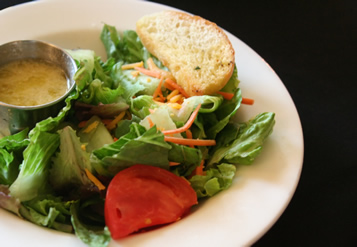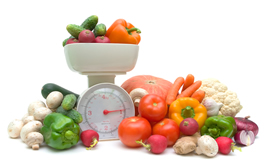The HCG diet may be one of the best weight loss treatments in the world, but not all products are created equal. There are many homeopathic and hormone free products out there, and our customers constantly report the trouble they experience when trying to lose weight with these fake products. Homeopathic is just a term that means the product contains so little HCG, it’s not detectable by any test. Hormone-free is exactly as it sounds, it does not contain even a single molecule of the HCG hormone. Doctors have known for decades that a minimum of 125 IUs of the hormone (equivalent to what’s in hundreds of bottles of homeopathic HCG combined) per day in order to achieve long term results.
These products never supply this level of the hormone, but for those products that do, like HCG Plus, the results are staggering for users. The average weight loss we see with our product is approximately 30 pounds per regimen. However, many people wonder how they can go about and maintain their success after reaching their end goal, and stopping phase two and HCG. This is never an easy task, but the protocol itself specifies some fairly straightfoward ways to keep your progress in a permanent fashion after you end your diet.
Phase Three of the HCG Protocol
 The final phase of the HCG diet program is one that’s designed around maintaining your weight loss after you halt taking HCG. Once you stop taking the hormone each day, your body will slowly return back to normal, where your metabolism is free to move. This is important, since if you do not return to your normal biology, your metabolism will begin to severely slow down the longer you stay on the protocol. This is not a result of the HCG, but rather the lower caloric intake that the diet demands. The hormone can only stop this for so long, and only so effectively.
The final phase of the HCG diet program is one that’s designed around maintaining your weight loss after you halt taking HCG. Once you stop taking the hormone each day, your body will slowly return back to normal, where your metabolism is free to move. This is important, since if you do not return to your normal biology, your metabolism will begin to severely slow down the longer you stay on the protocol. This is not a result of the HCG, but rather the lower caloric intake that the diet demands. The hormone can only stop this for so long, and only so effectively.
Phase three is designed around maintaining the weight that has been lost, and preventing gaining it back after halting the HCG hormone. Naturally, it’s not possible for the hormone to continue to impact your body positively after you have stopped taking it once you’ve reached your weight loss goals. As a result, there needs to be a long term diet strategy that can control weight gain and prevent it over the longer term as well. This is why the phase three portion of the protocol was developed.
The final phase of the diet encourages users to take in approximately 1500 calories per day, and this is done to maintain the weight that was lost during phase two. These 1500 calories per day can be many foods that are not allowed on the more strict protocol itself during the dieting phase. Many grains and carbohydrate sources are permitted again, along with milk products, but the diet should still generally be low in carbs. Things like soda are not permitted once you enter phase three either, and alcohol should only be rarely consumed. You will stick to a somewhat similar diet to the Mediterranean diet or the Paleo diet, during this time, with lots of low fat proteins and low carbohydrates (unprocessed) foods. Doing this, you will be able to maintain your weight loss throughout without issue.
